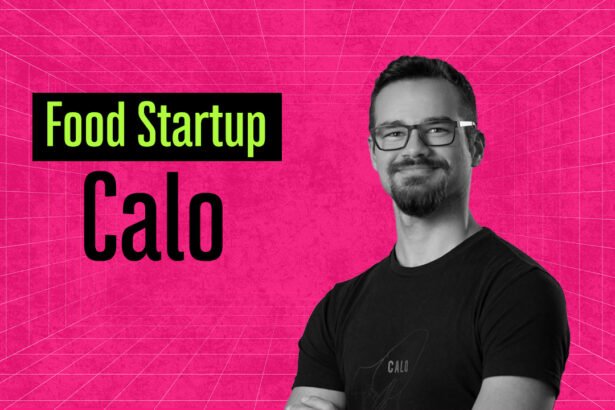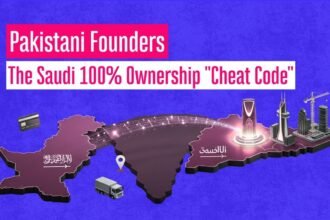Ahmed’s path from a nascent startup founder to the leader of Calo, a tech-powered healthy food company now valued at over $75 million in total investments and employing over 1,000 people, is a compelling narrative for any aspiring entrepreneur in the MENA region. His story is one of profound learning, strategic pivots, and an unwavering commitment to solving significant market problems, offering rich insights into the realities of building and scaling a successful tech venture.
From Malaeb’s Ambitions to Critical Realizations
Ahmed’s first significant entrepreneurial venture was Malaeb, launched in 2016 as a platform for booking sports fields, which later added social features to connect players. As CEO, he saw Malaeb expand across most GCC countries, generating over $3 million in annual transaction value. However, this initial success soon unveiled a critical, underlying challenge: the market for team sports was not only surprisingly small but also showing signs of decline. Ahmed’s deep dive into user behavior and market data revealed that only about 5% of the population engaged in team sports, and even those numbers were trending downwards as people shifted towards individual fitness activities.
This realization was a pivotal moment for Ahmed. He understood that the magnitude of the problem you solve directly correlates with the potential size of your business. Despite Malaeb being financially viable and having secured nearly $1 million in investment, Ahmed felt a deep sense of dissatisfaction, realizing the company couldn’t achieve his ambition of becoming a $100 million enterprise. This emotional attachment to his first venture led to a period of “depression,” highlighting a crucial lesson: entrepreneurs must avoid falling in love with their ideas to the point of overlooking fundamental market realities. Making the tough decision to step away, Ahmed approached his investors with transparency, explaining his diminished belief in Malaeb’s long-term potential. To his relief, they were understanding, acknowledging the inherent risks of venture capital. This experience underscored the importance of maintaining honest and open communication with investors, even when delivering difficult news.
The “Lost Year” – A Period of Exploration and Personal Hardship
Following Malaeb, Ahmed found himself at a crossroads. With a one-way ticket to Silicon Valley, he embarked on what he refers to as a “lost year,” a period of intense exploration and learning. This time was marked by significant financial strain and emotional difficulty, amplified by the pressure to succeed after dropping out of university against his family’s wishes.
During this period, Ahmed adopted a strategy of rapid, low-cost experimentation. He pursued a wide array of ideas: from a platform for celebrity video messages to a cold brew coffee subscription service and even a free coding school model. He built and tested these concepts quickly, sometimes spending as little as $2,000 to $10,000 over a couple of months, allowing him to validate market interest without substantial investment. This iterative approach was critical for refining his understanding of problem-solving and market fit. Despite the immense pressure, an “unnatural drive” fueled by a desire to prove himself kept him from settling for traditional employment and pushed him to continue searching for a truly impactful problem to solve. To navigate the emotional and intellectual complexities, Ahmed rigorously documented his thoughts, plans, and feelings using tools like Notion, a practice that helped him process challenges, maintain focus, and gain perspective, emphasizing that “writing is thinking”.
Calo Genesis – Proving the Hypothesis and Achieving Market Leadership
The genesis of Calo, a healthy meal subscription service, stemmed from Ahmed’s personal need as “the ideal customer” – someone busy who valued clean eating and convenience but lacked culinary experience. In November 2019, Calo launched with a soft, invitation-only approach, initially serving just seven customers (Ahmed, his sister, and five friends). He partnered with a third-party kitchen, prioritizing speed to validate the core hypothesis of market demand over immediate profitability. This rapid validation proved immensely successful, with 200 people signing up for an invitation on day one, confirming significant market interest.
A crucial element of Kcal’s early success was its strategic branding and positioning. Ahmed deliberately avoided the term “diet,” instead emphasizing “clean eating”. This conscious effort helped shift public perception, transforming healthy food from a “pity” purchase into a desirable lifestyle choice, fostering a sense of pride among customers. As Calo rapidly scaled, however, relying on outsourced kitchens led to quality control issues. This prompted a critical strategic decision: to bring operations in-house, eventually acquiring their own kitchen (ironically, the same one they had initially outsourced from). This vertical integration, extending even to specialized delivery for temperature-sensitive healthy meals, ensured full control over the customer experience – a key differentiator in a crowded market. Ahmed’s philosophy centers on being “obsessed with the customer,” viewing loyalty and repeat purchases as the ultimate measure of success, which enabled Kcal to become the market leader in every city it entered, often surpassing companies that had been established for decades.
Scaling, Sustaining, and Global Horizons
Calo’s impressive growth quickly attracted significant investment. Starting with $200,000, the company secured additional rounds rapidly: $500,000, then $1 million in 2020, followed by $11 million in 2021, and another $13 million in 2022. Most recently, Kcal announced a $25 million funding round as part of a larger $50 million raise, bringing its total investments to $75 million.
This funding journey highlights a key insight for entrepreneurs: early-stage investments often hinge on the “potential success of the company” and the founder’s vision, rather than just current financials. Investors understand the high-risk nature of seed and pre-seed funding, seeking the “potential for a $100 million company”. Ahmed emphasizes that founders should strive to be in a position of strength when seeking investment, meaning they shouldn’t desperately need the money. A strong product that solves a big problem naturally attracts investors. He also observed that some MENA VCs can be less “bold,” preferring proven, often imported, ideas over truly innovative ones born from the region.
The intense pressure and long hours associated with rapid growth took a toll on Ahmed’s health, leading to issues like irritable bowel syndrome (IBS) and chronic stress. He now views business as a “mental sport” where rest, hobbies, and personal well-being are crucial for sustained performance and energy.
Calo’s latest funding aims to achieve several ambitious goals: expanding customer segments, diversifying business models beyond subscriptions (e.g., on-demand and supplements), and pursuing global expansion. Ahmed’s audacious vision is for Kcal to become one of the top 10 global healthy food brands, challenging established giants. In a groundbreaking move, Kcal recently acquired a UK company, marking its first step into international markets, a strategy designed to mitigate risk by leveraging existing operations. Ahmed is also a strong advocate for integrating Artificial Intelligence (AI), foreseeing a future where companies without advanced AI applications will struggle to compete. Kcal is actively experimenting with AI agents and other applications to revolutionize customer experience and operational efficiency.
Reflecting on the Journey and Looking Ahead
Ahmed’s journey with Calo is a powerful illustration of the entrepreneurial spirit in the MENA tech ecosystem. It underscores the critical importance of solving big problems for large markets, the strategic value of rapid experimentation and iteration, and the transformative power of customer obsession and meticulous branding. His experience with Malaeb taught him the harsh reality of market limitations, while his “lost year” forged resilience and a deep understanding of lean validation. With Kcal, he demonstrated how a personal need, combined with technological expertise and a commitment to quality through vertical integration, can disrupt an industry and achieve market dominance.
The challenges he faced, from market misjudgment to personal burnout, highlight that entrepreneurship is indeed a “mental sport”. However, his ability to adapt, maintain transparency with stakeholders, and continuously innovate—now eyeing global expansion and AI integration—provides a blueprint for success.
For aspiring entrepreneurs in the MENA region, Ahmed’s story offers an invitation to think big, start small, and iterate fast. It’s a call to prioritize well-being, to cultivate strong investor relationships built on trust, and to never shy away from global ambitions. By focusing on deeply understanding customer needs, embracing technological innovation, and being prepared to make difficult strategic pivots, the next generation of MENA tech founders can build companies that not only succeed locally but also make a significant impact on the global stage.




